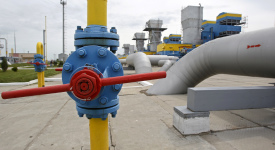Multi-Speed Europe? Differentiated Integration in the External Relations of the European Union
Juha Jokela (Finnish Institute of International Affairs)
Differentiated integration of the European Union is not a new phenomenon. Yet, in the wake of the financial crisis, this phenomenon is discussed more frequently. In light of the financial problems in the Eurozone, which has surfaced during the economic recession, some states that have not adopted the euro were highly critical of the common currency. Given the reluctance of some Member States to strengthen the economic and monetary union – including the UK and the Czech Republic, many see the differentiated integration as the only way to overcome this political division within the Union. On the other hand, there is a serious danger that this process will lead to an even greater disaccord within the EU, or even to its fragmentation.
Moreover, differentiated integration is not just an internal problem of the Union, but it also affects the EU’s external relations with third countries. In most cases, the phenomenon of differentiated integration is seen as a way to advertise and promote certain political agenda without the need of an unanimous agreement by all of the Member States. However, the growing differences between the euro area and the rest of Europe may adversely affect the ability of the Union as a whole to formulate a unified and coherent foreign policy. Two-step integration can be, externally for foreign partners, greatly confusing and incomprehensible.
So far there have not been any convincing indicators highlighting any significant increase in differentiation in foreign affairs within the European Union. Nevertheless, the possibility that the deepening integration of the Eurozone countries would spill-over into the sphere of international relations cannot be completely ruled out. During the protracted financial crisis, the Eurosceptic voices tend to gain strength. Then, it becomes so much more important to strengthen the integration and not the differentiation of the European Union.
(The study can be uploaded here: http://www.fiia.fi/en/publication/392/multi-speed_europe/)
Framing Banking Union in the Euro Area
Diego Valiante (Centre for European Policy Studies)
The strengthening of financial integration in the European Union may be a very laudable goal, but the harmonization of rules for the smooth functioning of the single market ignores the range of interventions that are, under the common monetary area, desirable for dealing with the moral hazard of governments. Current activities of the EU concerning the construction of a banking union and the debate about financial fragmentation essentially delay appropriate management of inherited bank assets, which can be ineffective and could also damage the Eurozone economies. The attempts at finding a solution or to manage the potential moral risks of banks lack the effective measures for preventing market failure in the Eurozone financial system. Any further delay in dealing with the sensitive issue of inherited assets can throw the whole EU in a prolonged deflationary spiral. In his publication, Diego Valiante proposes two measures to bring the banking union to its ideal form: a credible resolution mechanism and a general ban on government aid to the financial system in the euro area countries.
The resolution mechanism will require a large privately funded resolution/recapitalization fund, whereby those Member States in dire needs to tap into this fund will have to meet strict conditions. The criteria must be at least as strict as those that are currently being implemented by the European Commission. The resolution will possibly be only as a solution of the last resort. Once the resolution mechanism is appropriately designed and implemented, the credit markets will have conditions for smooth operation and will be able to avoid self-induced credit crisis. In any case, despite the existence of a trusted resolution mechanism capable of fulfilling all the requirements, the need for a general ban on state aid in the euro area countries is needed. As the crisis has not yet been fully averted, it is essential that the European institutions establish a full-fledged banking union as soon as possible, which will in turn be able to cope with all the challenges of the financial markets.
(The study can be uploaded here: http://www.ceps.eu/book/framing-banking-union-euro-area-some-empirical-evidence)
European Commission and Parliament: What Relations?
António Vitorino (Notre Europe – Jacques Delors Institute)
António Vitorino , the former Portuguese Commissioner of the European Union for Justice and Home Affairs, former judge of the Constitutional Court and the Portuguese Defense Minister and the current President of Notre Europe – Jacques Delors Institute, expressed his views on the ideal state of working relations between the European Commission and the European Parliament. First of all, he predicts the development of a multi-speed European Union, whose core being comprised of Member States from the Economic and Monetary Union. In his authoritative paper, Vitorino asks how this development will affect the powers of the EU institutions. While he puts forward the idea that the creation of new institutions for the euro area does not come into consideration, he also proposes the creation of a special sub-committee in the European Parliament.
The subject of many debates is the way the new President of the Commission is inaugurated. The European Council (Heads of the EU Member States) has been fighting with the European Parliament over the right to inaugurate the President. According to the treaties, the right belongs to the Council, however, the European Parliament requires, using the argument of democratic legitimacy, a greater say in the selection of the President. In short, both bodies should then approve the President. Vitorino, like many others, suggests that the European political factions in the European Parliament should go into the elections with the proposal of the President of the Commission. This step would effectively connect faces of the political party with its political program, which could in turn increase the public’s interest in the election. This would be a clear signal to the European Council that the European Parliament is ready to play a key role in the selection of the President of the Commission. However, Vitorino doubts that the Council would automatically follow the initiatives of the political factions. Due to the demand to express a double trust (Council and Parliament) to the Commission, it is likely that the new Commission will be a great coalition, composed of three or more political families. Its functioning will then not take place according to classical logic of parliamentary majority /opposition, as we know it from national parliaments.
Another issue is the total number of EU Commissioners. Since the Irish referendum, the principle “one country – one commissioner” has been applied. However, the body of 28 Commissioners is in reality facing only twelve to fifteen actual essential portfolios. Vitorino proposes to establish a group of Commissioners who will be jointly responsible for wider portfolios (for example: foreign affairs, as well as covering trade, development aid, enlargement, neighborhood policy and humanitarian aid). This system would have strengthened the principle of collegiality. In this case, the President of the Commission should not be restricted by nominations of Member States’ governments and should have a freer hand in selecting commissioners. Ultimately, Vitorino suggests that what the EU needs is clear objectives, which the citizens of the Member States can accept as their own.
(The study can be uploaded here: http://www.eng.notre-europe.eu/011-17659-European-Commission-and-Parliament-what-relations-what-relations.html)







